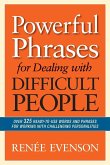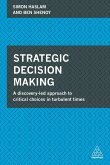In general, effective strategic decisions are associated with a step-by-step analysis of information. However, such recommendations are detached from the realities decision makers are faced with, i.e uncertainty of a decision problem, abundance of information from various sources, as well as political behavior and personal idiosyncracies in the decision making process. Wolfgang Gänswein examines the interaction of these factors by using a broad sample of 230 decisions in a broad range of industries. The results show decision effectiveness is not only affected by uncertainty in a company's environment but also and even more significantly by the information processing preferences of a single decision maker.
Hinweis: Dieser Artikel kann nur an eine deutsche Lieferadresse ausgeliefert werden.
Hinweis: Dieser Artikel kann nur an eine deutsche Lieferadresse ausgeliefert werden.








